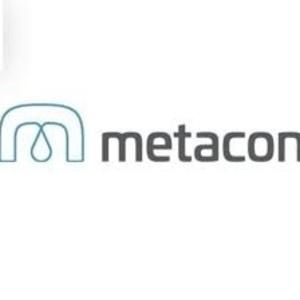Metacon receives order for ethanol-to-hydrogen system

April 10, 2023
BY Metacon
The Switzerland based company WattAnyWhere (WaW) orders its second reforming system from Metacon’s subsidiary Helbio, for conversion from ethanol-to-green hydrogen. The system will be used for on-site production of electricity without connection to the electricity grid, i.e. off-grid. Produced electricity will be used in charging stations for electric vehicle (BEV) charging. This follows a previous order from Metacon’s successful delivery to WaW of a smaller system. The new order becomes a part of WaW’s scaling up as a player with commercial electric car charging stations. The order value amounts to approximately EUR 193 000. Delivery is planned for the fourth quarter of 2023.
Today's transport system is largely dependent on fossil fuels and affects the climate and the environment by creating and accelerating global warming through the greenhouse effect. The transport sector is under great pressure to transition towards more sustainable and climate friendly technical solutions. While Metacon’s core technologies around green hydrogen as fuel is emerging as one of the key future solutions for important parts of the transportation market, the battery-electric vehicle (BEV) market has already grown to take a significant position in automotive and for conventional car traffic.
Advertisement
Advertisement
While car manufacturers are rapidly transforming their portfolios and launching new BEV models at high pace, there are growing concerns and challenges for how customers will be able to charge these cars in desired places and sufficiently fast as the number of vehicles increases. Both green electricity production as well as electrical grid infrastructure today present far bigger challenges than the roll out of new vehicles.
WattAnyWhere’s solution brings an alternative and complementary way of creating fast electric vehicle charging without the need for grid re-build or upgrades. Furthermore, using existing renewable fuels such as ethanol, the WattAnyWhere stations aims at enabling green, off-grid EV charging both in new places and at existing gas stations. Thus, the solution is highly adapted to and complementary to existing fuelling infrastructure already built for supporting car traffic for people world-wide since almost a century.
Metacon’s Helbio unit has significant know-how as well as intellectual property for the type of development required for the construction and will manufacture and install the core reforming unit converting ethanol to hydrogen for further processing in fuel cells to create electricity for charging.
Advertisement
Advertisement
Christer Wikner, president and CEO of Metacon, said, “It is very pleasing to see that we are now taking the next big step in the collaboration with WattAnyWhere and the scaling up of this transformative technology. By utilizing the very large and well-distributed amounts of renewable ethanol already available in Europe as a raw material for the production of green hydrogen, we can contribute our solution directly to the very rapid growth and major challenges that exist within the battery electric transport sector“.
Didier Roux, CEO of WattAnyWhere, commented, “It is quite clear that expansion of electrification as well as clean electricity production sufficient to meet the growing battery electric vehicle market has significant challenges. Therefore, we are extremely happy to now take this next step towards practical demonstration of our renewables based off-grid generator and support the deployment of BEV fast-charging.”
Related Stories
A small but increasing amount of biodiesel in the United States is consumed in the residential, commercial, and electric power sectors, according to new estimates now published in the U.S. EIA’s State Energy Data System.
IAG and Microsoft are extending their 2023 co-funded purchase agreement for SAF by five years. The SAF used under the agreement will be produced by Phillips 66’s Humberside refinery and LanzaJet’s facility in the U.S.
U.S. exports of biodiesel and biodiesel blends of B30 or greater fell to 7,849.6 metric tons in February, according to data released by the USDA Foreign Agricultural Service on April 3. Biodiesel imports were at 21,964.9 metric tons for the month.
Neste and DB Schenker, a logistics service provider, have collaborated to work towards expanding DB Schenker’s adoption of Neste MY Renewable Diesel in Asia-Pacific. DB Schenker trialed the fuel from December 2024 to February 2025 in Singapore.
The International Air Transport Association has launched the Sustainable Aviation Fuel (SAF) Registry with its release to the Civil Aviation Decarbonization Organization. The registry is now live and under CADO management.
Upcoming Events










